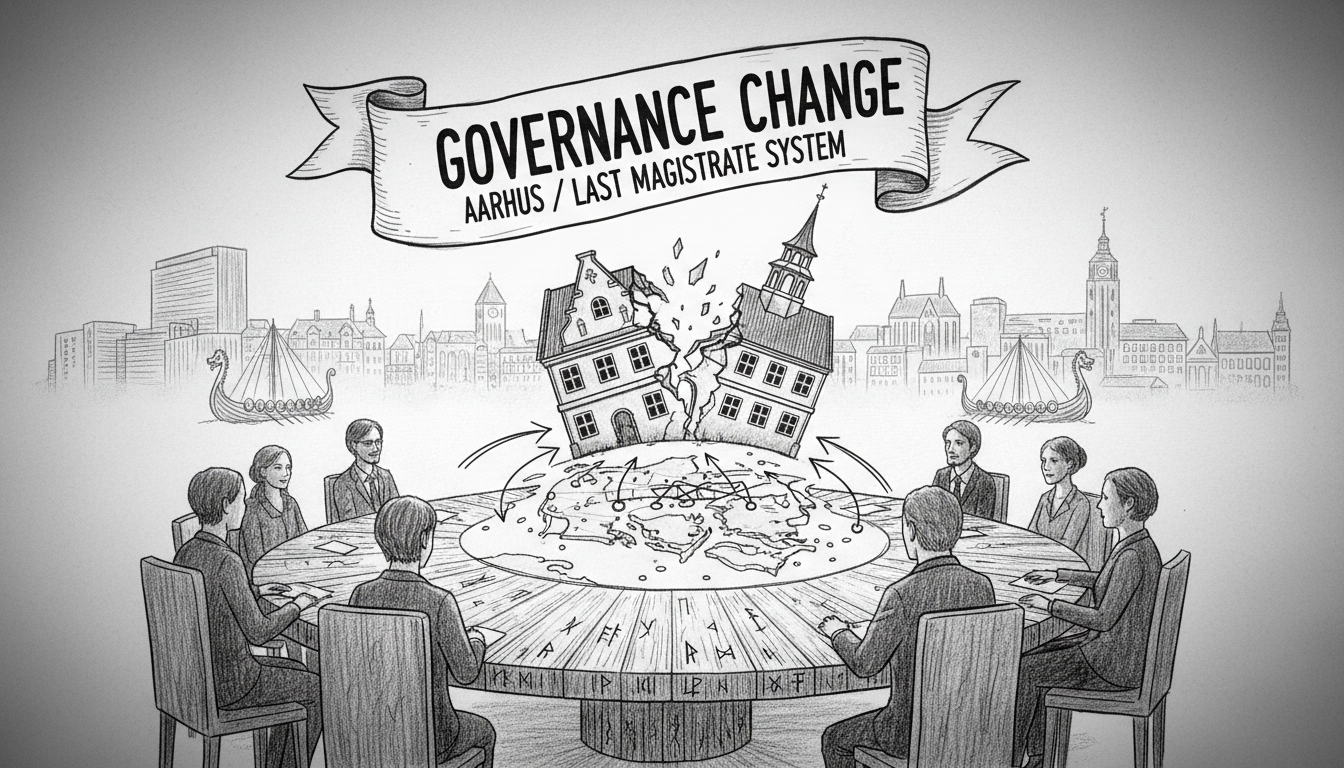A broad coalition of political parties in Aarhus Municipality has proposed abandoning the city's unique magistrate governance system. The move would mark the end of an era for Denmark's second-largest city, which remains the last municipality in the country using this centuries-old administrative structure.
Six parties presented the proposal at a press conference, arguing the current system limits citizen participation and creates bureaucratic inefficiencies. The coalition includes parties from across the political spectrum, demonstrating rare bipartisan agreement on the need for reform.
Aarhus stands alone in maintaining the magistrate system after Copenhagen, Odense, Aalborg, and Frederiksberg transitioned to alternative governance models in 1998. The remaining Danish municipalities use committee-based governance systems that distribute power differently.
The current magistrate structure divides Aarhus into several departments, each led by an elected councilor with their own administration. Together with the mayor and three magistrate members, they form the Magistraten, which functions as the municipal government. This body prepares city council meetings, makes recommendations, and implements council decisions, while the city council itself acts as the municipal parliament.
This concentration of power means political committees in Aarhus have less influence than their counterparts in cities like Copenhagen, where the intermediate governance system gives committees responsibility over various municipal administrations. Committee chairs in Copenhagen are the individual technical mayors, creating a different power dynamic.
The proposal comes after years of debate about Aarhus's unique position. Previous mayor Jacob Bundsgaard attempted multiple times to abolish the system, arguing it could save millions of kroner in municipal funds. Despite these efforts, he never secured the necessary broad support within the city council.
Current mayor Anders Winnerskjold acknowledges the system's shortcomings but expresses skepticism about achieving the required consensus. Changing the governance structure requires both a broad majority in Aarhus and parliamentary approval from the national government in Copenhagen.
While there's growing agreement that the magistrate system should change, parties remain divided about what should replace it. The current proposal focuses only on abolishing the existing structure without specifying an alternative, leaving the most contentious debate for future negotiations.
This governance debate reflects broader questions about municipal efficiency and democratic participation across Denmark. As cities grow and face new challenges, many are reevaluating whether traditional administrative structures meet contemporary needs. The outcome in Aarhus could influence similar discussions in other Nordic municipalities considering governance reforms.
The timing is particularly interesting given Denmark's ongoing discussions about regional administration and municipal cooperation. With several parties now openly criticizing the current system, the pressure for change appears stronger than in previous attempts. Still, the path forward remains uncertain without consensus on what comes next.

